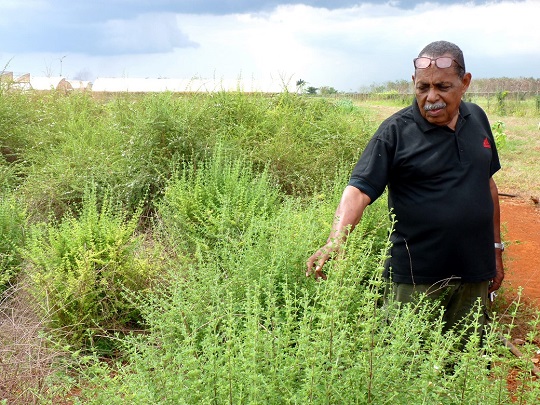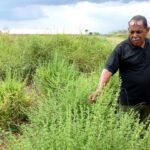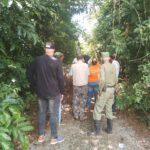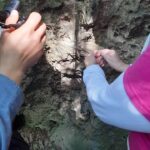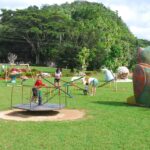Mayabeque, Cuba: The Liliana Dimitrova Horticultural Research Institute, in the province of Mayabeque, is a true paradise for those who love the cultivation of aromatic plants.
This is due to a project developed by the entity, aimed to achieving the reproduction of these species in Cuba, and substituting imports.
The engineer and assistant researcher, Rafael Deroncele Caignet, offered statements to Radio Jaruco, during a tour of the cultivated areas.
“We have thirteen varieties of aromatic plants: turmeric, basil, oregano, parsley, cilantro, rosemary, among others. Here there is food sovereignty, which was one of the things we were looking for, we multiply and process here through a pilot plant, and thus we do not have to bring anything from abroad; we are trying to substitute these imports”.
Journalist: Have you adapted well to the Cuban climate?
RDC: “Yes, they have a good adaptation.”
J: There is a theory in the population that once processed, the plants lose their properties. What can you tell us about that?
RDC: “If you use technology, good agricultural and manufacturing practices in the industrial process do not have to lose qualities.”
RDC: “We must also guarantee good irrigation systems, nutrition, attention to pests. All this together with the use, during processing, of the adequate temperature and humidity for drying these plants, are parameters that are required to obtain a high quality product. Finally, the packaging used is essential. Generally, they all have a durability of two years after they are processed”.
J: Do we comply with good agricultural and manufacturing practices here in Cuba?
RDC: “Yes, here we are trying to model this entire process in a pilot plant so that it can later serve as an example for its replication in the rest of the country.”

